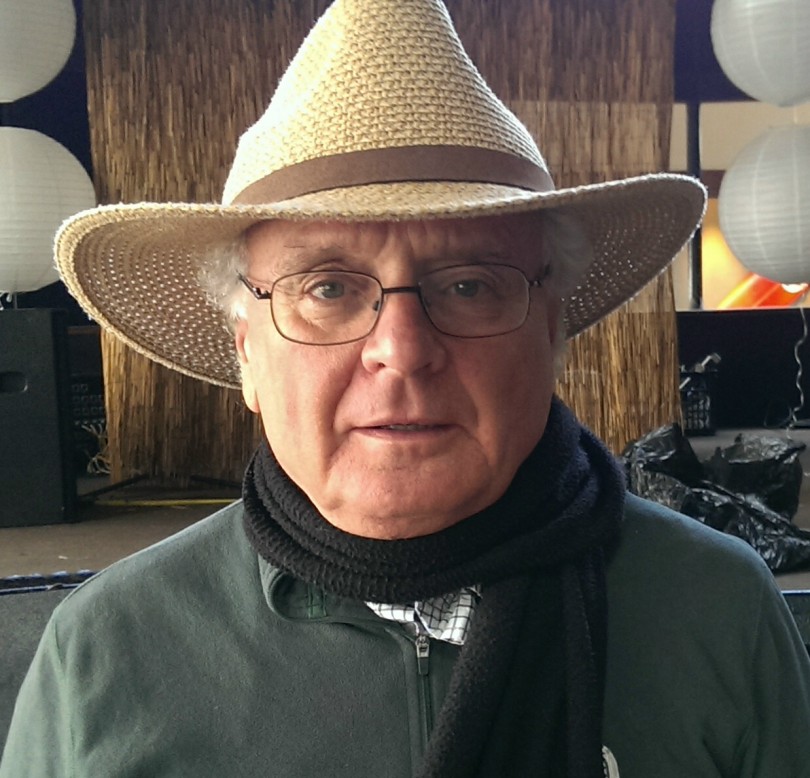aNewDomain.net — The NSA is big time into navel gazing. Rather than examine what it is doing to world citizens via its PRISM and Echelon e-surveillance projects, it’s now feeling sorry for itself.
The NSA’s new plaintiff cry says it is misunderstood.
It asks for the media, its whipping post, to help it. Not harm it. To aim to better understand it.
What?
On January 17, United States President Barack Obama is set to unveil new policies on electronic surveillance in general and the NSA in particular. Will he lend a helping hand to the NSA — or help the secret court Americans never knew about until NSA whistleblower Edward Snowden revealed the extent of U.S. government Internet surveillance in June 2013?
We’ll see.
Rick Ledgett, head of the NSA task force, specializes on what it calls “Snowden revelations” for the media. He says:
People don’t understand us … no one knows how the NSA works … It’s always been black box, Enemy of the State movies, stuff like that. People don’t understand the NSA’s checks and balances.”
There are checks and balances?
Yes, he says, and that’s one of the key points these officials want to make.
Sure, the NSA might collect a lot of data, but rules and oversight limit the extent to which privacy is compromised.
In an earlier comment, one official said that there is so much data, “you need the haystack to find the needle.”
In Wired, Nicole Wong, the nation’s deputy chief technology officer and former chief privacy lawyer for Google, emphasized the government’s good intentions with its once-secret surveillance efforts:
We’re trying to prevent another Boston bombing,” she says. “In a world where we have those threats, what can we live with? Is it more transparency, is it less collection?”
So the media is the creator of the NSA’s surveillance Frankenstein monster. Really?
On the Boston Bombing Question
The question that Obama and his advisers have to be asking themselves is: Is following and watching the Internet activities of all American citizens an activity that would have prevented the Boston bombings?
We’ll know what Obama thinks at the January 17th press conference.
We will find out if there will be a gigantic cover-up and spin or, rather, whether Obama will respond to domestic and international criticism with real transparent, accountable change in the way the NSA functions.
Are muzzled media and a limited-value Internet, where everything you do is collected for future who-knows-what, part of a digital world Americans want to live with?
It’s time for us to do some of our own navel gazing. Americans and world citizens alike need to think long and hard what they’re willing to trade off, if anything, in terms of privacy and freedom versus a feeling of safety within U.S. borders and elsewhere.

credit -linktv.org
Start Here: The Fourth Estate Black Hole
The media — aka the Fourth Estate — stepped into a rabbit’s hole created by Congress when it followed Snowden’s leaks to the UK Guardian last summer.
For that matter, Snowden could have gone to Washington instead of British media.
But he wanted to talk directly to the public and talk he did. Yes the media understands more about how democracy should work — and less about the NSA.
Journalists by and large know that if you build a haystack of data,you can also create a big data base to find needles — some day. And you can use it however you want, provided you have a secret court like the FISA court to watch your back.
Consider that the bombings in Boston weren’t prevented for a lack of metadata.
The automatic pilot of the NSA surveillance machine is in need of urgent review.
Even Senator John McCain says that the NSA system is broken and needs special congressional investigation.
The answer to Nicole Wong’s “what can we live with? Is it more transparency, is it less collection?” Yes to less collection. Yes to more transparency.
It’s not so much that media better needs to understand the NSA, though no one in the media is saying no to more information about the NSA’s secretive activities. It’s that the NSA needs to better understand the Internet and media. It needs to understand technology, and understand media’s role in that technology. How the Internet is empowering new voices, voices that won’t stop crying out for a return of First Amendment freedom of speech rights. And privacy.
The NSA’s strategy of crying for help, claiming that the media misunderstands it, is not a credible defense for anything. In the NSA PRISM scandal, the media understood its role quite well. It ran the slides. It told the story that Snowden presented in slides that no one, in the end, would deny.
And the media knew, instinctively or otherwise, that there is a major story there when it and the people it serves were not permitted to watch the watchers.
And the watchers are watching only themselves.
Watch Carly Simon’s You’re So Vain video below. It fits.
Video: You’re So Vain (I Bet You Think This Song Is About You), Carly Simon
For aNewDomain.net, I’m David Michaelis.
Based in Australia, David Michaelis is a world-renowned international journalist and founder of Link Tv. At aNewDomain.net, he covers the global beat, focusing on politics and other international topics of note for our readers in a variety of forums. Email him at DavidMc@aNewDomain.net.













